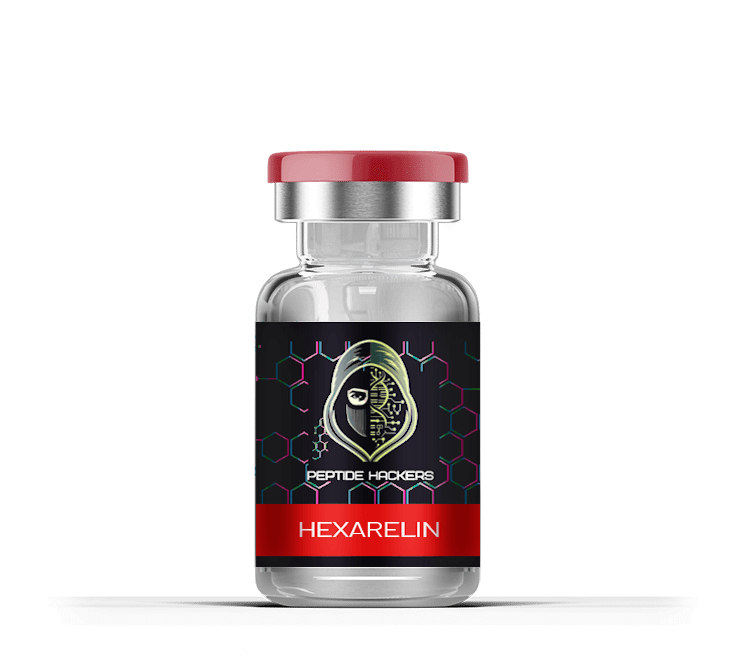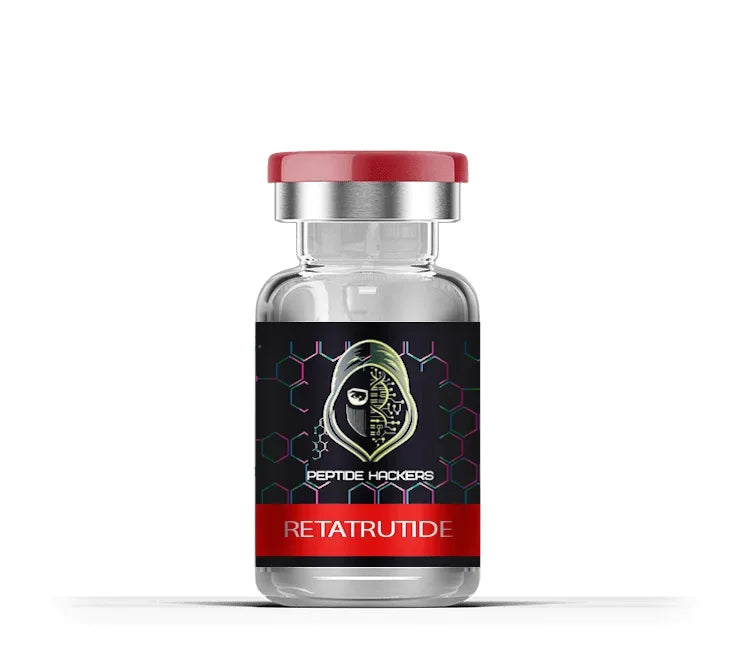Reta
Shipping: We offer reliable shipping options both domestically and internationally. All orders are processed within 1-2 business days. Shipping times vary depending on your location, and you will receive a tracking number once your order has shipped. Please note that international customers are responsible for ensuring that peptide products comply with their country’s import regulations.
Returns: Due to the specialized nature of our products, we do not accept returns or exchanges. If you receive a damaged or incorrect item, please contact our customer support team within 7 days of delivery. We will work to resolve the issue as quickly as possible, either by sending a replacement or providing a refund if applicable. For additional questions about shipping or returns, please reach out to our support team.

Buy It With
Hexarelin: Growth Hormone Release Pathways in Laboratory Studies
$34.95 USD
$40.00 USD
RETA Research Guide Triple-Agonist Laboratory Overview
RETA is an investigational triple-receptor agonist examined in controlled studies and preclinical models. Content below is presented for method development, assay planning, and literature review.
Published study data at a glance
Scope Selected outcomes reported in peer-reviewed publications and conference abstracts describing RETA in controlled studies.
| Metric (study context) | Reported result |
|---|---|
| Mean body weight change at ~48 weeks | 24.2 percent mean reduction reported in study cohorts |
| Interim body weight change at ~24 weeks | 17.5 percent mean reduction reported in study cohorts |
| Liver fat change (imaging-based subset) | Up to 82.4 percent reduction reported |
| Status | Ongoing late-stage development per sponsor disclosures |
Figures reflect study-level summaries. Not guidance for administration or use.
Receptor and mechanism overview
Laboratory investigations describe RETA activity at GIP, GLP-1, and glucagon receptors. Common readouts include binding, cAMP signaling, and downstream transcriptional responses in cell systems.

Comparison context from literature
Separate publications report outcomes for other incretin-pathway agents. Any cross-study comparisons are descriptive and for literature context only.
| Intervention (published) | Reported mean change window |
|---|---|
| RETA (investigational triple-agonist) | ~24.2 percent at ~48 weeks |
| TIRZ (dual agonist) | ~20.9 percent in reported trials |
| Sema (GLP-1) | ~14.9 percent in reported trials |
Context only. Not comparative therapy advice, access information, or guidance for people or animals.
References
- NEJM phase 2 publication describing RETA study outcomes
- Conference abstracts and sponsor communications on late-stage programs
- Peer-reviewed articles on incretin biology and multi-receptor agonists
Cite primary literature in lab reports. Verify study parameters before replicating experiments.
Last updated 2025
Our Story, Our Promise
At PeptideHackers, we’re committed to advancing research by providing high-quality peptides for scientific and research purposes. We ensure the highest standards and transparency in every product, supporting your research with science-backed solutions. Welcome to PeptideHackers.
Frequently Asked Questions
-
Due to the sensitive nature of our research products, we do not accept returns or exchanges. However, if you receive a damaged or incorrect item, please contact our customer support team within 7 days of receiving your order, and we will work to resolve the issue.
-
Research peptides are short chains of amino acids designed for laboratory and scientific research purposes only. They are not intended for human or animal use.
-
Peptides should be stored in a cool, dry place. For long-term storage, refrigerate at 4°C, and for even longer preservation, freezing at -20°C is recommended.
-
Yes, we provide a Certificate of Analysis (COA) for every batch of peptides, detailing the purity and composition to ensure research quality.

